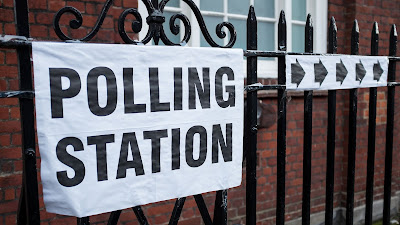The Prime Minister,
Boris Johnson, appears to be riding out the scandal of holding lockdown parties
in 10 Downing Street, in contravention of the laws in place at the time.
Johnson, along with his next door neighbour, Chancellor Rishi Sunak, have received
fines for one breach, with more expected to follow.
This is the
first time that a serving prime minister (and Chancellor) have been found
guilty of breaking the law, and I think that previous prime minister’s would
have felt that they had to resign their post, but not Boris Johnson. As one of his
former housemasters at Eton school reported, Johnson doesn’t think that rules
apply to him. Indeed, he has pretty much made a career in politics on this
basis.
In these circumstances,
one might expect Tory MPs, who are well aware of how badly this whole saga has
gone down with voters in their constituencies, to remove him by calling for a
vote of no confidence in him, but very few have done so. I think some of them do
see the importance of honesty and integrity, of which Johnson is completely
lacking, but they appear to be nervous about bringing him down.
The most common
reason that many are citing for their inaction, is that whilst there is the
ongoing war in Ukraine, no change of leader can be contemplated. This view
ignores history, where prime ministers have been changed, most notably Herbert
Asquith, during in World War I, and Neville Chamberlain during in World War II.
These were wars that Britain was actually fighting too, which is not the case
with current conflict in Ukraine.
What real
difference would it make if Johnson was replaced? None, I think. Somebody else
can go around making breezy speeches, with no difference one way or the other,
but many Tory MPs are taking refuge in this thinking. But this might change,
and a look at previous Tory prime ministers who have been removed in recent
times by their MPs, is instructive.
Margaret
Thatcher, was brought down in 1990, a prime minister much more powerful and respected
than Johnson, mainly over the unpopular Poll Tax policy. This led to defeat
for the Tories in a byelection in Eastbourne in September 1990, normally a rock solid Tory
constituency. She resigned in November of same the same year, having lost the
confidence of her ministers.
Theresa May, was
forced to resign in 2019, after it became clear that she would face a no
confidence vote from her MPs. The Tories recorded only 8.8% of the vote in the
European Parliamentary elections earlier that year. Her premiership was dogged
by a failure of MPs to agree with her attempts to get a post Brexit deal from
the European Union.
So, we can see
that the commonest factor in Tory MPs removing their sitting prime minister, is
how well they see their prospects of retaining their seats in a future general
election. Tory MPs were always well aware of Johnson’ shortcomings, but recognised
that he was popular with the voters, and so this trumped all else.
Which brings us
to the current situation. Is Johnson still a winner? Opinion polls suggest not,
with 75% of those surveyed saying that they believe the prime minister to be a
liar. The breaching of lockdown rules touches the public in a way that perhaps
other issues do not. Most people followed the rules, and many have memories of not
being able see loved ones, in some cases before these people died from Covid.
They expected the people making these rules to follow them, like they did.
On 5 May local
elections throughout the UK will take place. If voters reject the Tory party in
huge numbers, over their outrage of the breaches of the lockdown rules, this
will put pressure on Tory MPs to act, out of self-interest, if nothing else. There
is also a Parliamentary byelection coming in Wakefield, a seat the Tories
gained in 2019.
A harbinger of
what may happen can be seen in recent local byelections. The Green party has gained
two seats from the Tories over recent weeks. In Storrington and Washington and
Lyme and Charmouth, they made impressive gains from the Tories. Will
something similar happen in the upcoming local council elections? It may well
be so.

No comments:
Post a Comment